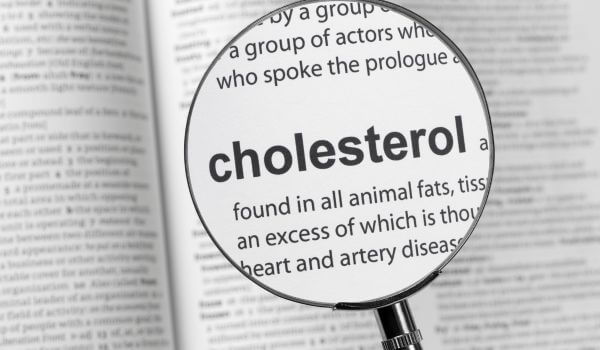 Artificial Intelligence, often called AI, is the science of creating and using computers to think and act like humans. Machines empowered by AI can learn, reason, solve problems, and even understand human language independently! Hundreds of advances on the horizon will make healthcare with AI a basic component of medicine.
Artificial Intelligence, often called AI, is the science of creating and using computers to think and act like humans. Machines empowered by AI can learn, reason, solve problems, and even understand human language independently! Hundreds of advances on the horizon will make healthcare with AI a basic component of medicine.
How does AI Work?
At the core of AI are three essential components:
- Data: For any AI system to function, it needs a pool of data from which to learn. This is the “knowledge bank.” The more data it can get into its bank, the “richer” it can become. For example, AI voice assistants like Siri and Alexa are fed countless hours of recordings of people talking to understand human speech.
- Algorithms: These step-by-step instructions tell the AI how to process the data. Algorithms help AI recognize patterns and make decisions. For instance, when you ask your smartphone about the weather, it uses algorithms to understand your words and then fetches the weather data.
- Learning: This is where the magic happens. AI analyzes the data it has and finds patterns. In a never-ending cycle, the algorithm makes predictions, observes what happened, and then “learns from its mistakes” to improve over time. Self-driving cars use learning to constantly improve their ability to move safely on different roads, in traffic, and in different weather conditions.
AI is continually evolving, and its future is exciting. Researchers are working on creating even more innovative AI systems that can understand and interact with us on an ever more profound level. Artificial Intelligence is like a super-smart companion that’s always ready to help, doesn’t get tired, and constantly learns from interactions to improve its response to the tasks you throw at it. Imagine having a buddy who’s an expert and updates [her] knowledge base in real time without ever needing a break or a nap. AI is changing the world around us, from voice assistants making our lives easier to self-driving cars ensuring safer roads and Netflix making our movie nights better.
What does AI in healthcare mean?
With the arrival of universal high-speed internet connections, thanks to the availability of 5G all around the country, we reached a world where you could consult with a doctor anytime, anywhere, and receive accurate diagnoses and treatment recommendations within seconds.
Now, the addition of AI-powered healthcare promises a second revolution. The website Statista, which tracks trends in numbers, predicts that the AI healthcare market will grow from just $11 billion in 2021 to $187 billion in 2030. The implication is that medical providers, hospitals, and others in the healthcare industry will shift dramatically to using AI in all operations. The most exciting benefits include:
Faster and more accurate diagnoses
With its exceptional power in processing vast amounts of medical data quickly and efficiently, AI can analyze medical images, such as X-rays, MRIs, and CT scans, with incredible accuracy and in real-time. AI can spot abnormalities that even the most observant doctor might miss, enabling accurate detection of diseases.
Empowering the doctor
AI can be used to present a doctor with a complete and structured patient history that will highlight the information most relevant to the purpose of the current visit. Doctors can query the patient’s data and immediately find records from past visits, tests, and investigations. The AI system can also present comprehensive background information on what signs and symptoms the examination should look for based on worldwide practice.
Improved administration
One of the most time-consuming tasks that healthcare providers have to perform is repetitive tasks documenting their investigations, diagnoses, and treatments. AI-powered tools such as voice-to-text transcriptions can free up their time from doing paperwork by allowing them to record and transcribe their activities on the go. At the next level, AI medical records systems will be able to speed up the analysis of the doctors’ actions and share this information with all the other administrative areas of activity, like ordering pharmaceuticals, accounting, and appointment scheduling.
Virtual assistants
More and more people are happy to get first-level service from AI-empowered facilities for their simple queries and administrative tasks, especially when the alternative is having to wait in line. Devices like bots work as AI virtual nurses, offering 24/7 access to information, answers to simple questions, scheduling appointments, and all the other routine activities that used to necessitate a visit to the doctor’s room. In the latest development, healthcare providers are building AI-powered apps that can be downloaded onto a person’s handheld device, offering advice, direct access to their records, virtual consultations, and many more facilities that remove the need to ever visit a doctor’s room.
How is data science used in health science?
Data science covers a broader range of activities that relate to data collection and leveraging it to gain insights and make informed decisions in healthcare, enabling improved diagnosis, personalized treatments, efficient healthcare operations, and advancements in medical research. Natural Language Processing (NLP) extracts information from unstructured clinical notes and text. It creates a vast pool of raw data that needs to be analyzed and interpreted. Machine learning is where algorithms are used to make predictions and automate decisions based on the data patterns of the information that has been assembled.
Both disciplines are essential to play a central role in shaping the future of healthcare by harnessing the potential of data to improve patient outcomes and public health.
The main benefits include:
- Disease diagnosis and prediction
Data science algorithms can analyze vast amounts of patient data, including medical records, diagnostic images (e.g., X-rays, MRIs), and genetic information, to diagnose disease. - Drug discovery and development
Data science will accelerate drug discovery by analyzing biological data to identify potential drug candidates. AI-driven simulations and modeling help researchers test drug compounds virtually, reducing the need for time-consuming and costly lab experiments. - Personalized medicine
As we have written before in our blog about this subject, medical treatments will be tailored to individual patients based on their genetics, medical history, and lifestyle factors. Genetic profiling helps identify genetic variations that may influence a patient’s response to specific drugs, guiding treatment choices. - Healthcare operations
Hospitals and healthcare systems can use data science to optimize resource allocation, including staff scheduling, patient flow, and inventory management. - Electronic Health Records (EHR) management
By improving patient health records management, patient data becomes more accessible and valuable for healthcare professionals. - Disease surveillance
By analyzing data gathered from unrelated sources, such as social media, healthcare records, and environmental data, early warning systems can detect and track the spread of disease outbreaks and guide public health policy interventions. - Clinical trials and research
Using AI to design trials and analyze the results enables researchers to uncover new information from large datasets. It will lead to advancements in medical knowledge and improve the range of therapies.
How is artificial intelligence helping the healthcare industry?
Artificial Intelligence significantly impacts the healthcare industry by improving patient care, diagnosis, treatment, and operational efficiency.
Here are several ways AI is helping the healthcare sector:
- Disease diagnosis and prediction
For patients undergoing examination for serious conditions like cancer, fractures, and neurological conditions, AI-powered diagnostic tools can analyze medical images (e.g., X-rays, MRIs, CT scans) and detect abnormalities with high accuracy and speed, aiding in the early diagnosis and improving health outcomes. In other instances, machine learning algorithms can analyze general patient data to identify risks of diseases that may not yet have manifested with symptoms and so identify individuals at a higher risk of developing conditions like diabetes, heart disease, or Alzheimer’s. - Personalized medicine
AI analyzes the whole spectrum of a patient’s genetic and medical history and can diagnose diseases and create a personalized treatment plan with tailored medication, therapy, and dosage recommendations. These combine to reduce adverse effects and improve treatment outcomes. - Health monitoring
Real-time health data on vital signs, sleep patterns, and activity levels collected from wearable devices and IoT sensors can be analyzed by AI algorithms. AI interprets the data from wearables to allow for proactive healthcare interventions. - Medical imaging
Radiologists use AI algorithms to identify and highlight abnormalities, which assists in interpreting medical images. This reduces the risk of human error and improves efficiency. - Virtual health assistants
Chatbots are AI-powered virtual assistants that can provide patients 24/7 healthcare information and assistance. They can answer medical queries, schedule appointments, and provide medication reminders. - Clinical decision support
Medical professionals get AI-based treatment recommendations, ensuring treatments adhere to best practices and guidelines.
What can we expect to develop with healthcare with AI ?
There’s a great deal happening healthcare with AI that is expanding the scope of AI in healthcare organizations. Below, is just a few of the most innovative and unusual upcoming healthcare trends of the future.
- CarePods are walk-in booths that can be located all over the city and allow you to simply get basic monitoring and testing done without having to visit the nurse. Brought onto the market by Forward Health, it offers for “users to get their blood drawn, throat swabbed and blood pressure read … all without a doctor or nurse.”
- Surgical robots will become more commonplace in complex procedures such as joint replacement. One of the leaders in this field is Strykers, offering advanced visualization that guides surgeons and robotics with insightful analytics.
- Laboratory procedures are about to be revolutionized by the automation of procedures thanks to applications of AI technologies. One example coming onto the market sometime in 2024 is a new mass spectrometry clinical analyzer from Roche. In the past, the complexity of mass spectrometry limited its use to larger labs. Roche’s new instrument makes advanced mass spectrometry accessible to a wider range of laboratory environments.
- Disruptive Technology Award winner Pattern Biosciences builds AI powered DNA computers to cure disease, providing “culture-free tests that can quickly identify the pathogen causing an infection and determine its susceptibility to antibiotics. The test uses a combination of single-cell analysis and AI to directly measure the response of individual bacterial cells to antibiotics, which has potential to improve how healthcare teams make informed decisions on antimicrobial therapy.”
- A study into healthcare with AI conducted in the department of Pediatrics inside the division of Endocrinology at Johns Hopkins School of Medicine in Baltimore compared the ability of AI-empowered tests to detect diabetes in younger people (ages 8-21). The end target of the study was to evaluate how likely younger people were to get access to primary care facilities for diabetes, when in the main, routine exams to detect the condition were concentrated on the older population. In the study, one group served as a control, having to undergo the routine tests for diabetes. The other group underwent an autonomous AI diabetic eye exam without having their pupils dilated with drops. Within five minutes, the results of either “diabetic eye disease (DED) present” or “DED absent” were produced. In this group, 64% of the patients diagnosed with DED did follow up with an eye care provider within six months, compared with only 22% of the participants in the control arm
















